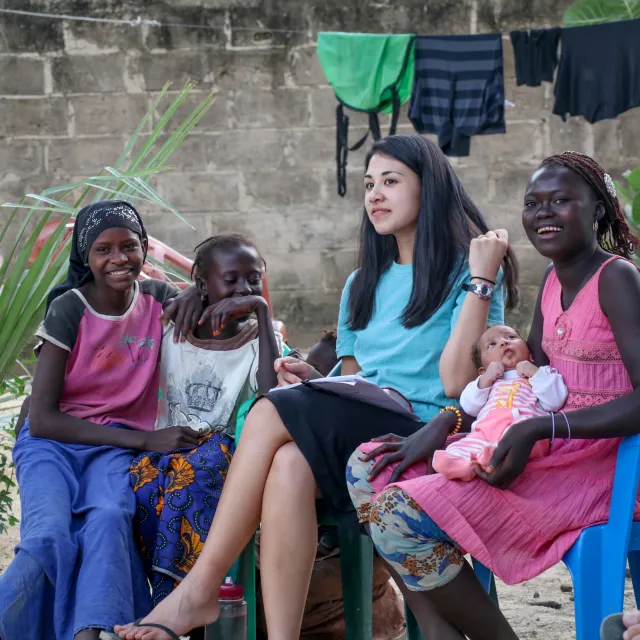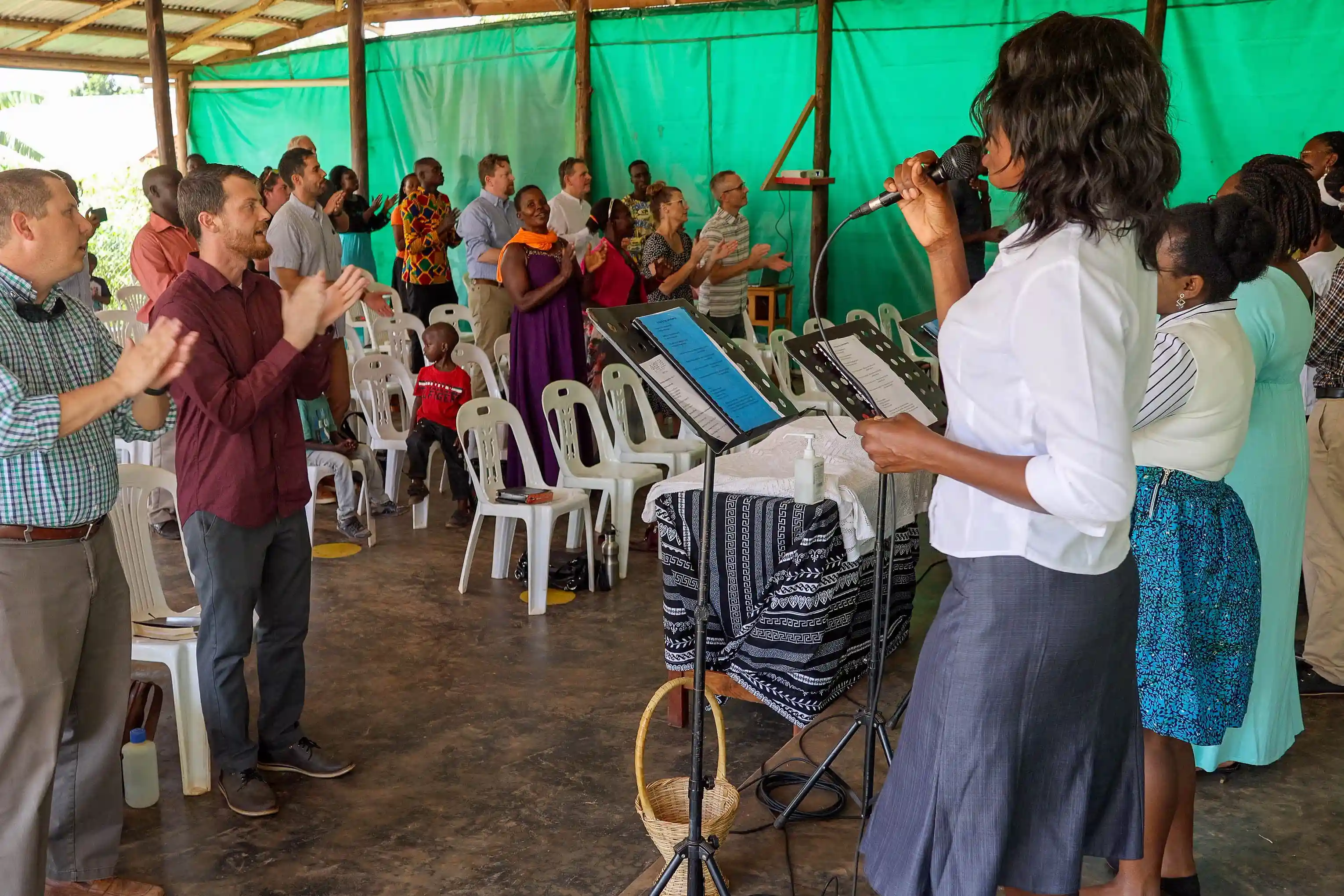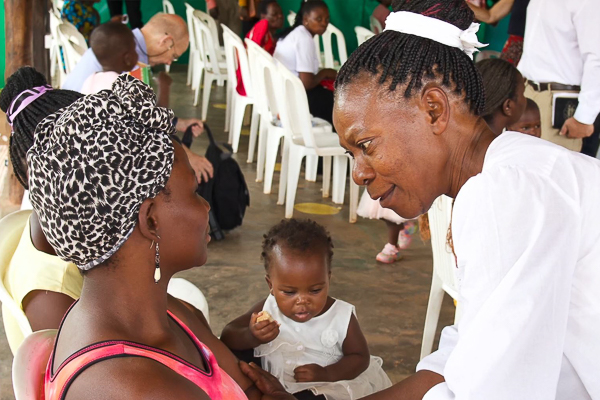MTW Compassion Funds Feed the Starving During Global Pandemic

In 11 countries spread across Africa, Central America, and the Caribbean, MTW missionaries have requested Compassion funds to feed those most severely impacted by the pandemic and lockdowns. These efforts have almost certainly saved hundreds or even thousands of lives and demonstrated the love of Christ to those in need.
As the COVID-19 pandemic continues to wreak havoc and sow death across the globe, governments face a cruel calculus: order businesses to close and residents to stay home to save lives, but devastate their economy and countless livelihoods in the process; or go about business as usual to save jobs and the economy, and overwhelm their healthcare system and lose countless human lives in the process.
These are both horrible options, not because of government ineptitude or nefarious schemes, but because pandemics are and always have been horrible. No single policy solution is capable of preventing tragedy—but the scales do not weigh out evenly in every context. For most of us in the global north, lockdowns and quarantines have meant inconvenience or financial hardship. Yet in many parts of the emerging world, the fallout from lockdowns has far more deadly consequences.
For many MTW missionaries serving in the emerging world, the COVID-19 pandemic has not only disrupted their ministries, it has begun to slowly kill their most vulnerable neighbors. In countries where the majority of the population already lives a hand-to-mouth existence, lockdowns mean no income. And no income means no food. As weeks of quarantine stretch to months, people are beginning to starve. MTW missionaries, acting as the hands and feet of Christ, are responding.
Uganda, Malawi, Zimbabwe, and West Africa
While few COVID-19 cases have been confirmed in Uganda, the prospect of the virus tearing through the country’s most vulnerable is frightening. Yet harsh lockdown measures enforced to prevent the pandemic’s spread may prove even more deadly.
“Most people in Uganda live hand to mouth,” explains MTW Uganda Country Director Bruce Sinclair. “Very few have any kind of savings, and the lockdown has had tragic consequences because when people can’t work, their families don’t eat.”
Couple that with rising food prices, and some are now struggling to survive. In Kampala, Uganda’s capital city, Bruce Sinclair and Ben Church, also an MTW missionary, are working with their local churches to provide relief for the poor both in their congregations and in the community.
For South Sudanese living in refugee camps in Uganda, the situation is even more dire. Rev. James Bab, a South Sudanese refugee and longtime MTW partner, put out a call for help to MTW missionaries last month. In the camps, he said, people were starving. There are four Presbyterian churches in the Kiryandongo Refugee Camp, where James lives and ministers, with an aggregate attendance of about 2,000 people, many of whom are widows, orphans, or differently-abled refugees. Thanks to the Compassion Fund, MTW missionaries in Uganda were able to give $30,000 to help feed 1,500 of the neediest congregants for two months—$10 per person per month.
“They had already lost some people to starvation before we were able to get them help,” said Bruce. “But I’m quite confident that the help that MTW gave saved a number of lives.”
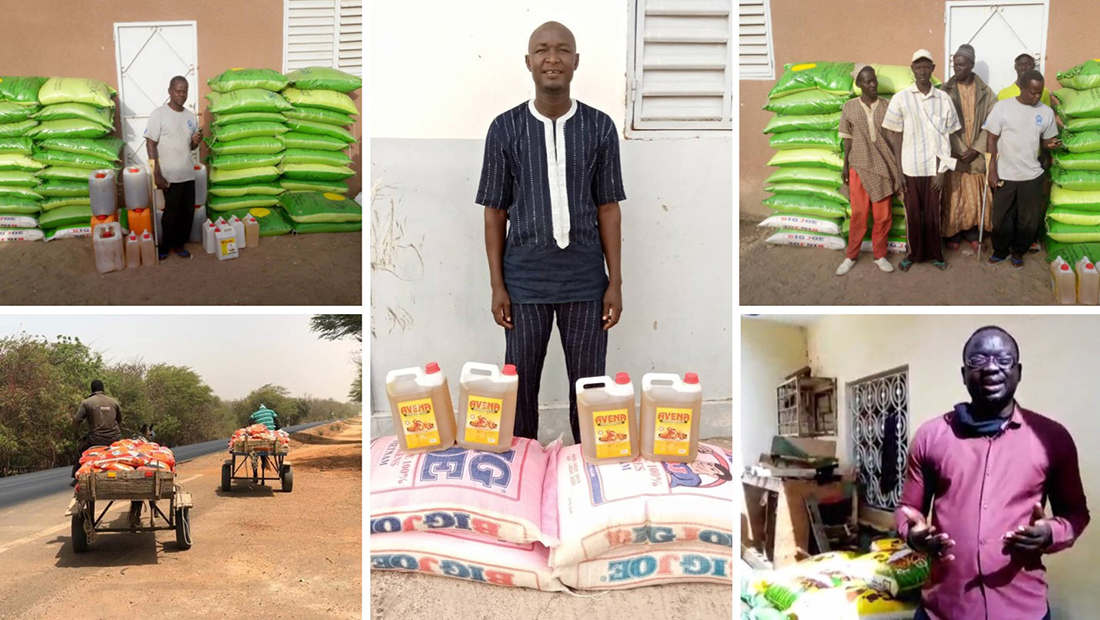
Similar missionary- and local church-driven Compassion relief efforts are afoot elsewhere on the continent. In West Africa, Compassion funds are being used to provide three weeks-worth of food, as well as sanitary and disinfection products, for 3,546 people in five different countries. In Zimbabwe, Compassion funds are helping to feed more than 500 families. In Malawi, an MTW church plant and national partners are ministering both to church members and to their neighbors, using Compassion funds to provide hygiene, food, and other needed items. Along with these life-saving items, they are also delivering the saving message of the gospel.
Haiti and the Dominican Republic
Even before the pandemic, Haiti was already economically unstable and engulfed in political chaos. COVID-19 has brought the Caribbean country to its knees. Since Haiti’s first confirmed case of COVID-19 in late March, the government has completely closed the borders—barring entry even to Haitians traveling abroad. All schools, universities, businesses, and government offices are closed. Here too, the poor starve.
“Because of the pandemic, ministries like ours are flooded with requests for help both from the people we are ministering to and from people in their immediate communities,” said MTW missionary Esaie Etienne. “In Haiti, there are no stimulus checks. The biggest need now is food and basic hygienic goods.”
Esaie and his family currently live in the U.S., traveling back and forth to Haiti throughout the year to lead and develop their ministries on the ground: several church plants, a small seminary, and Dociné Christian Academy—a school that provides a good Christian education, basic medical care, and free meal to more than 500 children in the impoverished Haitian village of Dociné. With the pandemic hitting Haiti with full force, all of these ministries are paused.
Meanwhile, Compassion funds have helped provide a month’s supply of basic food staples to over 900 people—members of the ministry’s church plants and students in Dociné.
“It might easily be more people than that, because students will go home with their food package and their families will also share in it,” Esaie said. “This is a great blessing to show the love of Christ in this way.”
To the east, in the Dominican Republic, Dominican nationals are receiving a survival level stimulus payment from the government. But for Haitian immigrant church leaders in Santo Domingo, the capital city, the situation is dire.
“Some of them don’t have their legal paperwork,” said missionary Garry Chambers, who serves as regional director for MTW’s Caribbean teams. “Now they’re confined at home, they have no source of income, and they’re not getting the help from the government because they don’t qualify for that.”
Garry, Esiae, and others have been working with these men and women of faith for years, training them in a three-and-a-half-year program of theology, ministry skills, and leadership. Facing the prospect of starving in a foreign city, some of these budding Christian leaders have decided to try to walk back to Haiti—hoping they can survive better in their home country. Looking to help, Garry put out a call for $8,000 in Compassion funds—enough for 80 family units to buy necessities and continue their fight for survival.
Belize
To the southwest, in Belize, MTW missionary leaders John and Karen Stodghill lead a team focused on church planting and revitalization. For years, they’ve partnered with the Presbyterian Church in Belize—a denomination that boasts 16 churches, but only has six pastors to lead them. For the last two years, the Central American country has suffered a severe drought, severely curtailing sugarcane production (one of their biggest exports) and making life difficult for many. Now, the pandemic has turned matters from bad to worse.
“We have very few ventilators in this country, and most of them are in Belize City or Belmopan, the capital city,” John explained. “Our healthcare is not adequate, but fortunately our government realized that we could not handle a pandemic of this nature. … They closed the borders and shut everything down.”
Though Belize has had few deaths attributed to COVID-19, testing is scarce and death rates are likely far higher than reported. In the meantime, the country’s most vulnerable are suffering. Belize has no formal system of support for the unemployed. When the pandemic hit, the government promised $75 Belize dollars per week ($37.50 USD) to those who lost their jobs—aiming to help them with groceries and utilities. Yet many people have yet to see a dime.
“My neighbor and his wife were both laid off,” said John. “He was a groundskeeper at a local hotel and she was a cook in the kitchen. They’ve been unemployed for over a month now and he still has not seen his BZ$75, and that’s the case almost everywhere. Supposedly there’s all these millions of dollars, and still no help.”
The church is stepping into this gap.
John mentions a feeding ministry in Belize City, run by the Presbyterian Church of Belize, that normally feeds around 35 people, three times per week. These days, that ministry is feeding between 65 and 70 people per week. Meanwhile, the Stodghills and the churches with which they work are giving out food baskets containing staples like rice, beans, flour, sugar, and milk. They’ve helped others who weren’t able to pay their water or electrical bills.
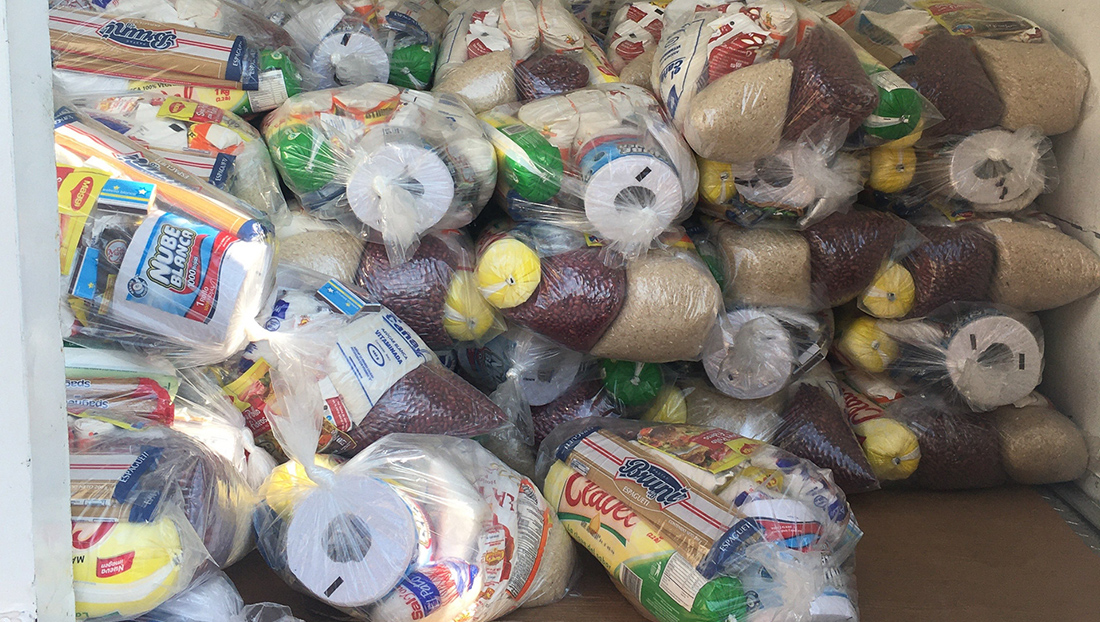
Times are tough for Belizean pastors too. With churches unable to meet since the third week of March, and people hurting for money, there has been no collection of offerings to help pay the pastors’ salaries. With congregants nationwide in desperate need of help, the denomination’s reserve benevolence funds have dried up as well.
“We’ve used every bit of it,” said Stodghill. “That was several weeks ago. Now people are hungry and they have no more food and they’re running out of medicine.”
Country-wide, local Presbyterian pastors and MTW missionaries have identified 90 families in need. Some have lost their jobs; others are elderly; some are single moms. As with MTW missionaries and churches elsewhere, MTW Belize is using Compassion funding to buy them rice, beans, and other staples. Thanks to Compassion funding, they will not starve.
The Church Responds
It can be all too easy to see the pattern in these stories—pandemic hits, lockdowns go into effect, the vulnerable starve—and to lose perspective, big and small.
Zoom out for a moment, look at the big picture, and be humbled at the magnitude of this tragedy. On June 1, Johns Hopkins recorded more than 373,000 confirmed COVID-19 deaths globally, and the year is not yet halfway finished. Millions more across face hunger, poverty, and insecurity as a result of lockdowns.
Now zoom in, and think about the fact that each of the thousands of individuals mentioned in this story is a distinct human being, made in the image of God and carrying their own story, fears, sorrows, joys, and dreams. And each of them is receiving the love of Christ in their hour of need, offered by His servants and His Church.
Isaiah 58:10 says: “If you pour yourself out for the hungry and satisfy the desire of the afflicted, then shall your light rise in the darkness and your gloom be as the noonday.”
As our broken world groans, the global Church responds. She mourns with those who have lost loved ones to disease; She comforts and prays for those left behind; She feeds the hungry. In a pandemic, compassion is as crucial a virtue as courage and prudence, and Compassion funds are saving lives. May they, too, be the catalyst that saves souls.
Please consider giving to support communities in need during this pandemic through MTW’s Compassion Fund.


